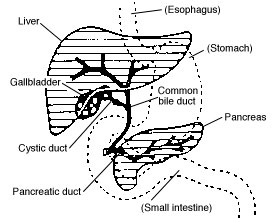 A cyst is a closed sac-like structure which has its own external surface. It exists on its own amongst the surrounding tissues. A fluid or a semi-solid substance usually exists inside the cyst. When such a structure develops in the bladder in large number, the condition is called bladder cysts.
A cyst is a closed sac-like structure which has its own external surface. It exists on its own amongst the surrounding tissues. A fluid or a semi-solid substance usually exists inside the cyst. When such a structure develops in the bladder in large number, the condition is called bladder cysts.
Symptoms of Cysts in the Bladder
- Urinary incontinence
- Pain during urination
- Urinary tract infection
- Infection in the bladder
- Swelling of the bladder
- Changes in the frequency of the urination
- Urgent need to urinate
- Urination at night times
- Pressure in the lower pelvis
- Abnormal color of the urine
- Foul smell of the urine
The symptoms are associated with the process of urination because bladder is the section of the body where the urine accumulated from the kidney prior to its ejaculation in the body. Formation of a cyst in this portion can cause complications in all the processes associated with urination.
Relationship between Cysts of the Bladder and the Interstitial Cystitis
Unfortunately the symptoms of the former mimic with that of a chronic and severely deliberating disease of the bladder known as Interstitial Cystitis (IC). The cause of this disease is not known. It affects men and women of all age group. However, women are more at risks of developing this disease than men.
It is worth mentioning about the signs of IC here because even the health care professionals cannot diagnose IC and cysts in the bladder with precision.
Symptoms of Interstitial Cystitis for Reference are
- Pain during urination found in 100 percent patients
- High frequency of urination (for every 10 minutes) found in 82 percent cases
- Urge to urinate at night times technically known as nocturia
- Pain that increases with the buildup of fluids in the bladder and relieved on urination
- Pain during urination
- Pressure in the lower pelvis
- Pain during sexual intercourse experienced by 27 percent patients
- Difficulty while driving, walking and traveling
Can a Cyst in the Bladder Be Malignant
Depending upon the nature of a cyst, it can be either benign or malignant. The former is a technical term used to mention any tumor which confirms itself to the location of origin. It does not interfere with the normal functioning of nearby cells. In this way, the existence of a benign cyst poses no threat to the well being of an individual.
On the contrary, if the cells in the cyst acquire cancerous abilities, it is called malignant. Such cells grow abnormally in number, interfere the working of normal cells turning into unhealthy cells. As a result, the cyst might get converted to a tumor.
When the cells of the tumor get disassociated with chunk and enter the blood flow, they can get drifted to remote locations of the body. In this way, a cyst with its origin in the bladder can have the ability to turn cancerous and spread the disease to as remote an organ as the lungs. The process is technically metastasis.
Conclusion – If ever cancer develops from bladder cysts, only the awareness of the symptoms can prove handy in the early diagnosis of the ailment. It can increase the chances of survival by manifolds.

5 Comments
Hoe do you treat bladder cysts? Statistically, how often are they cancer? What are the complications of surgery to remove bladder cysts? How long is the recovery from the surgery?
I did a scan today to see how my pregnancy is,to my suprise was told i had a cyst.is it harmful to me and ma baby or what can i do for it to disappear?
I have a cyst on my bladder. I think it’s bleeding but I’m not sure. I’m spotting and in a lot of pain but not sure if it’s my monthly coming early. Are there any specific signs? I don’t want to call my dr and have it just be my monthly.
I have had cancer before
now I was told I have
cyst on my bladder. I am
afraid.
I was told I have two cyst in my bladder, having them removed Feb. 11 will keep you posted the after part